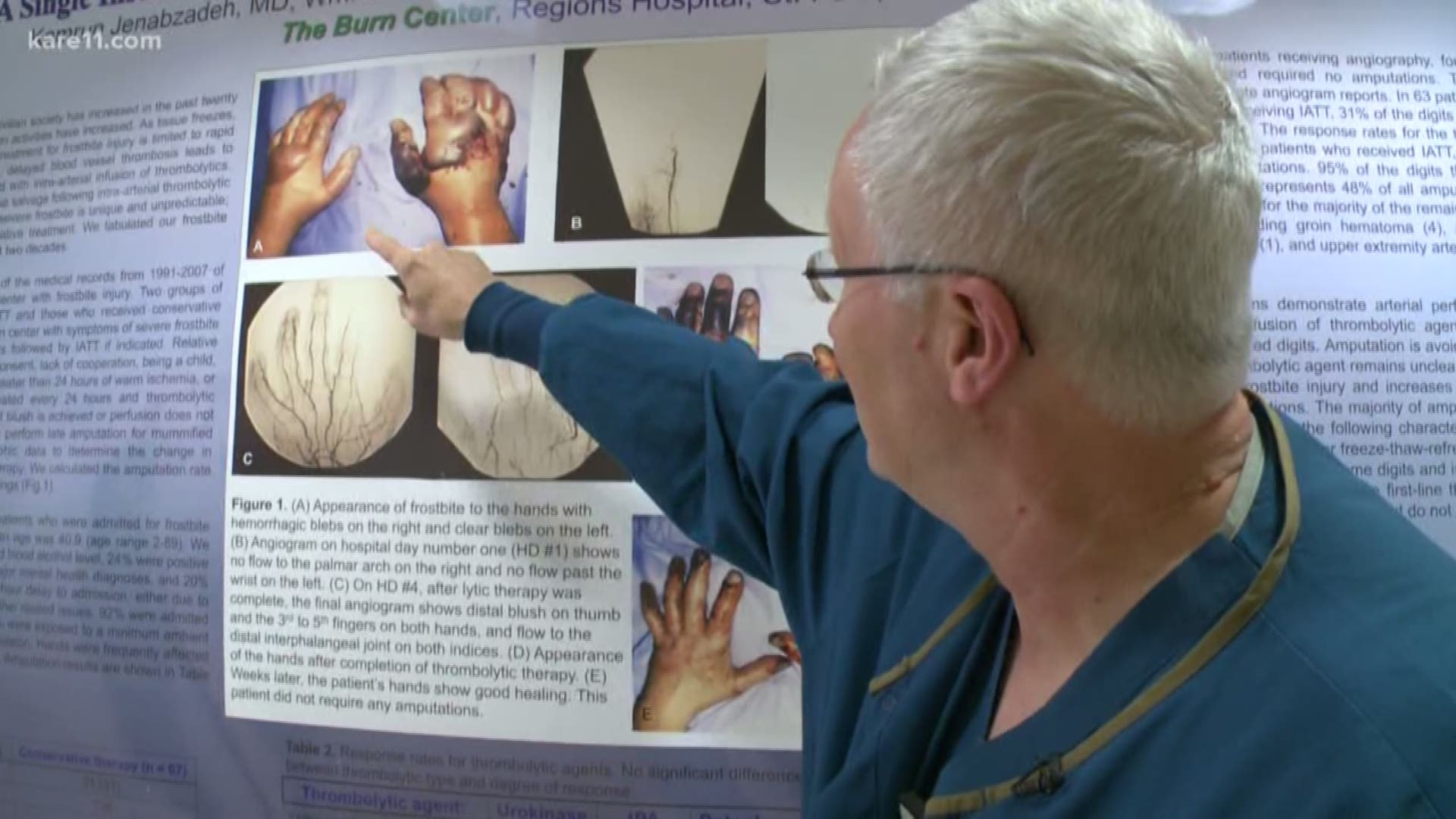ST PAUL, Minn. — Regions Hospital in St. Paul is seeing an increase of frostbite patients and they're preparing to treat even more cold-related injuries with below-zero temperatures expected this week.
According to Regions Hospital, they've seen more than 20 frostbite cases since Friday. On a typical weekend in the winter, they see 0-2 frostbite cases.
"Our burn unit is full," said Dr. David Dries, chief of surgery at Regions Hospital.
Dr. Dries said it doesn't take long for frostbite to set in.
"If the temperature projections for Tuesday and Wednesday are correct, it'll take as little as 5-10 minutes for exposed tissues, typically toes and fingers, to get frostbite. If you're around 0 degrees, it'll take 15-30 minutes to get frostbite," he explained.
Frostbite is considered a type of burn that happens when the skin and tissues below it begin to freeze. Symptoms include a pins and needles sensation, numbness, skin discoloration and skin that feels stiff or rubbery to the touch.
"If you reach the point where you got changes in the color of the tissue and blister formation, you probably should have someone take a look at those injured areas," Dr. Dries said.
Dr. Dries said it's important to rewarm the tissue, putting the affected skin in hot water as warm as 100 degrees.
"It may be very difficult to move your fingers or toes initially. That should improve... with rewarming in warm water. if that doesn't happen, then you need to visit an emergency department," he said.
People should limit exposure to the elements, especially hands and feet where the risk of cold injury to the tissues is the greatest.
"I'm a little scared," said Harriet Rydel of St. Paul, about the potential weather this week. Rydel took a walk outside Monday afternoon to look at the ice sculptures from the St. Paul Winter Carnival. She was bundled up with extra layers to keep warm on her walk.
Dr. Dries said people should consider carrying around extra winter gear, especially in their car.
According to Dr. Dries, the one thing a lot of frostbite victims have in common is that they were caught in situations they did not expect like a car accident or getting locked out of their house.
Dr. Dries also recommends keeping your gas tank full in case you get lost and run out of gas in a remote area.
"So people have to be very careful," he said.

